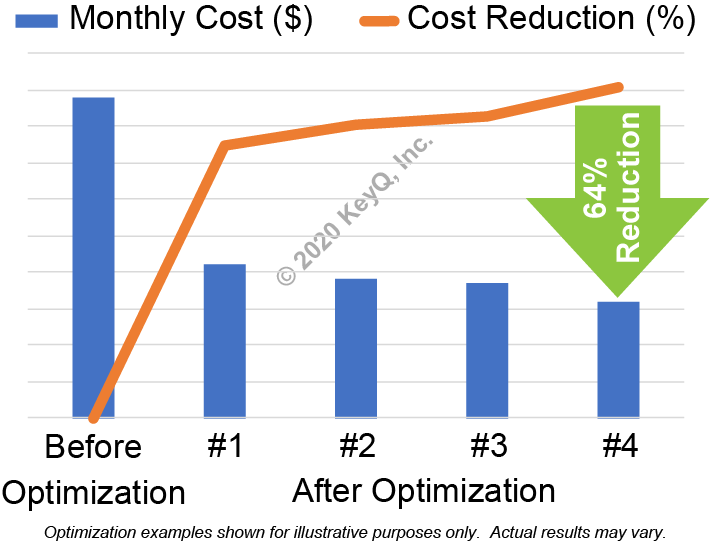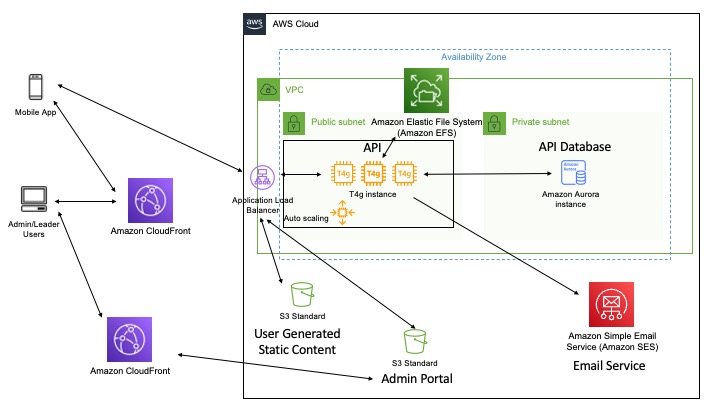Save 64% on AWS costs by migrating to Kyte and Graviton2
Read Time 2 mins | Written by: Kenneth Hough

The existing solution was not scalable
Zerocafé is a Tokyo-based company that offers subscription based drink-service for café and bar owners to attract more customers. The company had previously contracted out the development of an app and the associated backend on AWS but was experiencing several issues, including:
- Costly AWS bills, which worsened when attempting to scale
- Degraded performance affecting customer UX and churn
- Complicated and unstable tech stack to support scaling of a monolithic app
These issues not only impacted the businesses operating expenses but was resulting in increased customer turnover and reduced traction.
Migrating to Kyte and AWS's Graviton2 platform
After our discussion with Zerocafé business owner, Yoshiyuki Waguri, we explained the benefits of microservice architecture and how Kyte can improve cost-performance by:
- Scaling down the EC2 instance type to match Kyte's small resource footprint
- Removing costly state-management solutions (Kyte is a stateless framework)
- Decentralize and offload certain workloads to AWS resources, such as SES, SNS, S3, Lambda, API Gateway, and Step Function
These changes will need to be conducted in parallel with operating the existing infrastructure, followed by a migration plan to minimize downtime. During these steps, AWS costs will inadvertently increase due to the increased resources being deployed while maintaining the existing infrastructure, however the cost savings gained after the migration will make up for the temporary increase in opex.
One of the precautions we implemented even before starting the migration was switching their DNS service provider to Cloudflare. With Cloudflare's DNS proxy service, not only can you secure your records but offer quick and seamless updates to your DNS records with minimal impact to your clients, as the changes occur behind the scenes. The migration to Cloudflare greatly helped with making the overall migration smooth.
 The new infrastructure involved a backend running KytePHP™ on several t4g.nano instances beind an application load balancer. Static and user generated content were stored in respective S3 buckets and no longer on the severs themselves (yikes!). A Cloudfront distribution was configured for each of the static and user generated content, increasing content delivery performance. Lamda, API Gateway, and Step Functions were used for scheduled routine functions.
The new infrastructure involved a backend running KytePHP™ on several t4g.nano instances beind an application load balancer. Static and user generated content were stored in respective S3 buckets and no longer on the severs themselves (yikes!). A Cloudfront distribution was configured for each of the static and user generated content, increasing content delivery performance. Lamda, API Gateway, and Step Functions were used for scheduled routine functions.
Overall, we were able to reduce Zerocafé's AWS costs by 64% while improving their performance. Ripping the bandage in order to fix and optimize legacy tech stacks can be very painful, but the benefits gained from an optimized infrastructure is priceless. If you are experiencing similar cost-performance issues, don't hesitate to reach out to us even if it is just to discuss best-practices and potential solutions.
A Framework Built to Accelerate App Development for Startups
Kenneth Hough
Background
I founded KeyQ in March of 2020 with the vision of helping businesses achieve the next level of success through delivering innovative and meaningful cloud solutions. Since its inception, I have worked with several businesses, non-profit organizations, and universities to design and build cloud applications that have helped streamline their business processes and reduce costs.
Prior to KeyQ, I was a medical researcher at the University of Alabama at Birmingham (UAB) in the Division of Pulmonary, Allergy, and Critical Care Medicine. UAB is also where I worked on my doctoral thesis under the mentorship of Dr. Jessy Deshane and Dr. Victor Thannickal. During my doctoral work at UAB I was exposed to the “omics” and big data, which has influenced my career choice to develop data-driven analytics platforms in the cloud.
I also have to give a big shoutout to my undergraduate education at Worcester Polytechnic Institute (WPI), where I majored in biochemistry. WPI’s motto is “Lehr und Kunst,” which roughly translates to “Theory and Practice” or “Learning and Skilled Art.” WPI truly cherishes and upholds this pedagogy, which can be seen by the teaching styles and class sizes. The learning experience I had at WPI is unique and has shaped me to be who I am, being able to learn, practice and apply.
Personal Interests
I love to learn innovative technologies and try new things. I have a broad area of interests that include serverless architectures, machine learning, artificial intelligence, bioinformatics, medical informatics, and financial technology. I am also working towards my CFA level 1 exam for 2021. Other interests and hobbies include traveling, rock climbing, rappelling, caving, camping and gardening!

